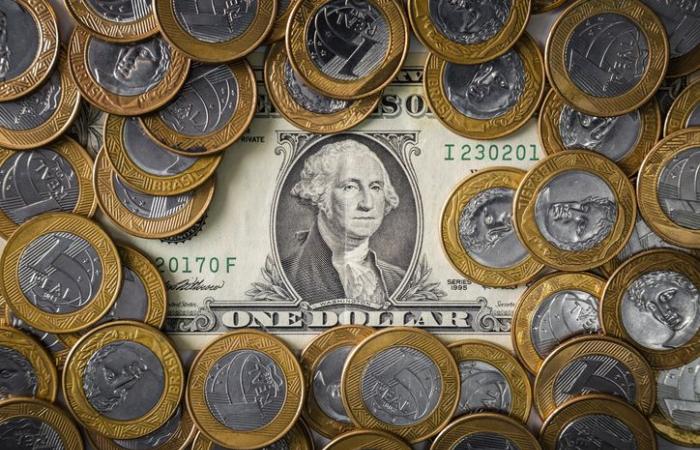SÃO PAULO (Reuters) – The dollar closed practically stable against the real this Wednesday, in a session without major catalysts and marked by relative calm after inflation data from the day before did not change bets on the start of the Federal Reserve’s interest rate cut .
The North American currency traded on the interbank market had a negative variation of 0.01%, at 4.9745 reais on sale. On B3, the first-month dollar futures contract rose 0.14%, to 4.9805 reais on sale.
Traders have recently noticed that the dollar has been trading in a narrow range in recent days, staying most of the time between 4.94 and 4.98 reais.
Masterclass
The Most Promising Stocks on the Stock Exchange
Download a list of 10 Small Caps stocks that, in experts’ opinion, have appreciation potential in the coming months and years, and watch a free class
“Many things are having an influence on the dollar not leaving this range: one of the important points was the American price index released yesterday. There were expectations that it would be much higher than estimates, but it was slightly higher, which did not cause the market to abandon expectations that easing would begin in June,” said Márcio Riauba, manager of the StoneX trading desk.
The U.S. consumer price index rose 0.4% last month after rising 0.3% in January, data showed on Tuesday. In the 12 months to February, consumer prices rose 3.2%, up from 3.1% in January. Economists consulted by Reuters projected an increase of 0.4% in the month and 3.1% on an annual basis.
While coming in slightly higher than expected on an annualized basis, the data was received as benign enough not to interfere with the Fed’s flight plan. Currently, most financial markets expect the U.S. central bank to ease borrowing costs unchanged until June, when there should be a first cut.
Continues after advertising
“By cutting its interest rate, the American central bank increases the risk appetite of international investors, inducing a positive flow towards economies with greater relative risk, such as emerging economies. With the expectation of the beginning of the cycle of cuts in American interest rates this year, we see a good opportunity to position ourselves in emerging markets”, assessed Inter in a report this Tuesday.
In Brazil, the Central Bank is expected to cut the Selic rate by 0.50 percentage points when the Monetary Policy Committee meets next week, to 10.75%, according to probabilities implied in the futures interest rate market, even amid concerns with inflationary pressure in the services sector.
Despite the relative visibility of monetary policy, financial agents still pointed out problems in the domestic scene.
“The political risk related to possible government interference in Petrobras’ policies ends up interfering in the process of appreciation of the Brazilian currency; Suddenly, this could disrupt the trajectory of reality,” said Riauba, from StoneX.
Brazilian assets fell last Friday after Petrobras’ decision not to distribute extraordinary dividends and place the resources in a statutory reserve. The fear is that this episode may have changed the balance of forces in a tug of war between the state-owned company’s executive president, Jean Paul Prates, and the Minister of Mines and Energy, Alexandre Silveira, who controls the board of directors.






